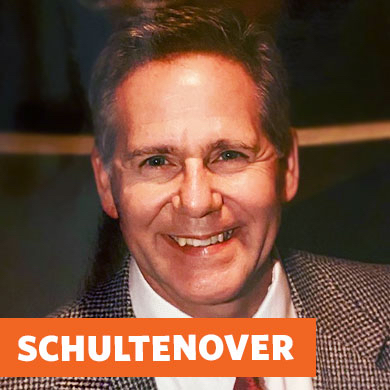
In early January of 2020, the world started to hear reports out of China of a rapidly spreading virus as predictors warned of a global pandemic. At the same time, inside the California-based offices of Thermo Fisher Scientific, Carroll alumnus Dave Schultenover ’83 and his colleagues mobilized their resources to fulfill what they anticipated would be a critical need. That foresight—the production of COVID-19 test kits—is proving vital to communities crippled by a growing number of coronavirus cases daily.
“In my lifetime, I never thought I would actually see a global crisis such as COVID-19. You always saw it on the movies but that is fiction. This threat is real and has many unknown elements,” said Schultenover, senior director of regulatory, quality and compliance for clinical diagnostics—niche products at Thermo Fisher Scientific.
Schultenover and others at the company kept an eye on reports as pockets of coronavirus started to spread across the globe in the early days of the outbreak. “That’s when the conversation started around, ‘How can we do this?’” he said. “We realized our ability to pull this together.”
Back at Carroll, he found a passion for biochemistry implementation as a student. Since then, he has worked during his career in food science and medical research. He expanded his skills to IT and rose through management ranks at various companies. His positions have gone from being a beer chemist for the G Heilman Brewery in La Crosse to plastics and then to medical devices and pharmaceutical manufacturing, which landed him three years ago in Fremont, California with Thermo Fisher Scientific.
In his work, Schultenover ensures that Thermo Fisher Scientific is compliant with FDA regulations in the U.S. before sending a product out to market but also must make sure that the company follows international standards when distributing products around the globe. The company has divisions on every continent except Antarctica, he said. He supervises 74 employees divided between regulatory affairs, quality assurance, and quality control for production of the COVID-19 kits.
“I’m pretty far up the food chain. It’s my managers that oversee the people that take care of these activities and makes sure everything happens on schedule,” he said. “If something goes wrong, that’s when they come to see me.”
Ensuring an effective product on a quick turnaround
Thermo Fisher Scienfitic knew with its previous experience of using its AcroMetrix line—assay control products —that it could support the type of testing that would be needed with COVID-19, Schultenover said. The company already had experience applying the technology to previous diseases to include H1N1 and the SARS virus.
This, though, would require quick coordination between the company and federal authorities, particularly the FDA allowing an Emergency Use Authorization. The EAU bumped a typical approval of three months to five years up to a matter of days, but with assurance that the company would provide a safe and effective product, Schultenover said. After a week of calls between the regulatory and product development teams and FDA reviewers beginning the week of March 3, Thermo Fisher Scientific received its EAU approval on March 13.
“Under and EUA we can leverage a product used for another purpose and fast track it, so to speak, as we have data we can leverage for FDA to review and make the decision that the risk level is low enough compared to the benefit and they authorize its use for the immediate emergency,” Schultenover said.
How the COVID-19 test kit works
The Thermo Fisher Scientific kit replaces the three-day test with a test that is four hours or less, is automated, and can process many patient samples at one time. It looks for specific molecules and protein sequences unique to this virus for confirmation of presence in a patient sample, Schultenover explained. It is being now distributed in hospital and clinical labs with the needed automated equipment or where the medical technologist can acquire the equipment and use it per U.S. requirements and will be shared around the globe.
“We are producing thousands of kits a week and it is literally all-hands on deck. Everyone that is properly trained is helping fill, label and kit,” Schultenover said. “This includes me as the demand is so high, the need is immediate and we have to keep the other IVD products for therapeutic drug monitoring supplied globally as well since these needs are also still emanate.”
Thermo Fisher had 1.5 million test kits in stock but started producing 2 million per week after its EAU approval and planned to produce 5 million per week going into April, according to company CEO Marc Casper during an interview with Mad Money in March.
Schultenover said: “This will be our lives for the next several weeks as we do our part to help this country and the rest of the globe deal with diagnosing and treating those exposed.”